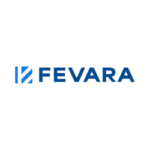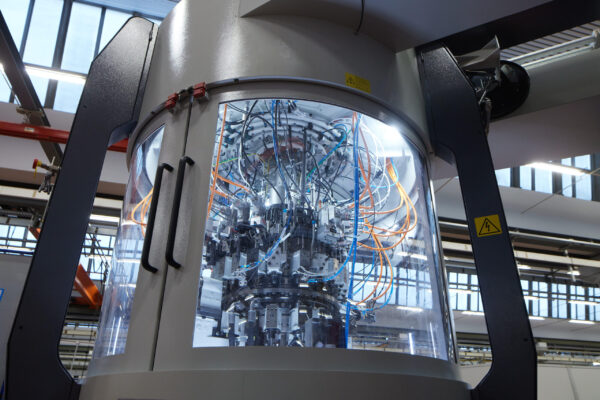Carr’s UK agricultural activities (which include substantially all the operations of its associates and JVs) encompass a broad range of services for farmers and other rural dwellers. This is complemented by an international business manufacturing and selling high added-value feed blocks in the US, UK, mainland Europe, the Middle East and New Zealand. Carr’s range of agricultural activities provides a level of protection against negative influences affecting one part of the agricultural sector. For example, although demand for feed blocks in the US was weak during FY17 because of depressed beef cattle prices, demand for agricultural inputs generally in the UK was strong because of improved farmgate milk and livestock prices. Within the Agriculture division, Carr’s frequently opts to form JVs with established industry partners in regions outside the UK, as this gives an accelerated market entry and reduces the risk associated with entering new territories.
Feed supplements: Adding-value through IP
Feed blocks: Patented process
Carr’s branded feed blocks address the requirements of more sophisticated farming practices where the calorific, protein, mineral and vitamin content of forage and feed are precisely controlled to maximise return on investment. Many of the feed blocks are formulated to promote increased utilisation of forage, thus maximising the economic performance of the animal. Other types improve the health of livestock. The patented production process, which was purchased from Pfizer in 1993, means that the top layer absorbs moisture from the atmosphere and is therefore removed when livestock lick it but the underlying layers are too hard to be removed. This regulates the amount of the block that can be consumed by livestock each day and thus the amount of nutrient taken up. The feed block formulation is adjusted for different animal species and specific life-stages such as pre-calving, post-calving or finishing lambs. Feed blocks are made in Cumbria, Germany and North America and sold throughout the UK, Europe, the Middle East, North America and New Zealand. Currently around 130,000 tonnes of feed blocks are sold worldwide each year.
Feed blocks: Clear financial return for farmers
The benefits to livestock have been proven by independent research. For example, research carried out at Kansas State University showed that supplementing the diet of yearling Angus bulls with FlaxLic, which contains high levels of naturally occurring omega-3 fatty acids, raised average daily weight gain from 2.93lb for the control group to 3.27lb (12%). An earlier study at the university showed that supplying the supplement for 61 days to developing bulls prior to breeding also improved their fertility. The ability to quantify the economic benefit for farmers helps overcome their innate conservatism and also means that Carr’s is able to generate a high margin from sales of the feed blocks.
Further expansion of feed block production in the US
The feed block activity is growing rapidly. In June 2013, the Western Feed Supplements plant in Nevada was acquired to gain access to the significant cattle population in California. This area could not be accessed economically from the group’s existing plants in Oklahoma, South Dakota and Tennessee. The first product from the SmartLic feed block plant in Nevada was manufactured in January 2016. This facility provides access to the important Californian dairy market. A new low-moisture feed block plant at the Tennessee site, where there is already a high-moisture feed block facility, will become fully operational in January 2018. This facility will enable the group to sell low-moisture feed blocks to farmers in the eastern states of the US, which cannot be accessed from existing operations.
Potential extension of feed block production in other geographies
Having now created a footprint in the US with sufficient scale and geographic reach, Carr’s intends to open feed block plants in other regions where cattle are reared on forage-based systems. Management continues to ship feed blocks to New Zealand and has set up a direct sales operation distributing to farmers through key merchants to drive sales. Once sales volumes are sufficient, Carr’s will construct a production facility in the country. The two sets of independent trials of Crystalyx blocks in Brazil are progressing well. Management expects these to conclude during FY18. The trials are an essential precursor to any marketing campaign, as farmers want to see research that has been carried out under local conditions before considering a purchase of a new product. Our estimates assume that any extensive penetration of these new geographic markets will be beyond the period covered by our forecasts.
Market for feed supplements
Demand for feed blocks in the US is primarily driven by beef cattle farmers and is linked to weather conditions, consumer demand for quality beef and cattle prices. Management is seeking to reduce the dependence on the beef industry by promoting products tailored for dairy cattle and horses in the US. Demand for feed blocks in the UK is primarily from sheep farmers and is linked to weather conditions at lambing time. Demand for feed blocks in continental Europe and New Zealand is primarily from dairy farmers and is linked to the adoption of more sophisticated feeding regimens that deliver increased output from the same number of animals.
There is limited competition for low-moisture feed blocks in the UK, Brazil and New Zealand. Brazil and New Zealand are relatively new markets where farmers are beginning to adopt the more sophisticated feed regimes common in the US. Ridley, which was acquired by animal nutrition and health specialist Alltech in 2015, is the North American market leader, with an estimated 40% share, compared with Carr’s 25%. In the US, Carr’s competes through branding, with its iconic ‘Feed in a Drum’ and SmartLic returnable steel packaging.
Carr’s manufactures around 500,000 tonnes of compound and blended feeds each year. These are sold to sheep, dairy and beef cattle farmers in the North of England, Scotland, South Wales and the Midlands. The feed is manufactured by an associate company, Carrs Billington, at compound feed mills in Staffordshire, Lancashire and Cumbria, and at blends plants in Kirkbride, Cumbria and Lancaster.
Carr’s is the third-largest manufacturer in the UK behind ForFarmers and NWF Group. There are numerous small feed suppliers in the area served by Carr’s, some of which purchase feed from Carr’s. Underlying demand for dairy feed in the UK is linked to the volume of milk produced, which was 2% higher year-on-year between July and September and 4% higher year-on-year in October (source: Agriculture and Horticulture Development Board). Overall milk yields rose by 4% in September, driven by increased use of feed as improvements in producer profitability stimulated production. The number of dairy farms and dairy cattle have declined over the last decade, as the industry moves to larger herds and more intensive rearing regimens. This trend favours a more technical approach to feeding cattle, which benefits larger operations such as Carr’s that can offer agronomy services and specialised feed blocks as well as feed. This technical approach is important whether farmgate milk prices are high or low, as farmers are keen to investigate changes to feed regimens that can help improve either yield or profitability, depending on the economic environment. Demand for feed varies from year-to-year depending on weather conditions. Carr’s is less dependent on demand for dairy feed than NWF Group because it also sells substantial volumes of sheep and beef cattle feed.
Carr’s operates a chain of 32 Country Store retail outlets and 11 smaller outlets in Scotland, the North of England, Staffordshire, Derbyshire and South Wales. These stores specialise in products for farmers and the broader rural community, including animal health products, agricultural sundries such as fencing and farm consumables, pet and equine products and rural clothing. The products offered vary from store to store to reflect the type of farming in the area. Farmers are typically conservative in nature and cautious about purchasing from brand-new outlets. Carr’s has therefore expanded its retail operations predominantly by purchasing smaller agricultural suppliers with a limited retail offer but a solid customer base such as Pearson Farm Supplies. Post-acquisition it then broadens the product portfolio to appeal to both farmers and other rural dwellers and expands the retail space, relocating the premises if necessary.
A high proportion of sales at Carr’s Country Stores relates to non-discretionary farming expenditure, so underlying demand, especially for farm machinery, is linked to farm incomes. Carr’s has been able to grow sales independently of this by broadening the product offer to include higher-margin animal healthcare products. Seven of the outlets offer farm machinery, making Carr’s one of the largest Massey Ferguson distributors in the UK. The retail outlets are typically situated at places convenient for farmers such as stock auction markets, rather than on conventional retail parks like stores operated by Countrywide Farmers. This difference in focus may partly explain why Carr’s Country Stores are prospering, while Countrywide Farmers reported a 21% decline in sales during 2016, generating a loss of £9.9m, and has agreed to sell 48 of its 53 stores to Mole Valley Farmers.
Carr’s operates eight fuel distribution depots, which service rural premises in Dumfries, Galloway, Cumbria and Lancashire. At over 100m litres/year, the operation is significantly smaller than that of NWF Group (over 510m litres), which is the third-largest supplier in the UK. However, unlike NWF, Carr’s is not intending to become a national player in the sector, but views this as a service within its agricultural supply offer. The operation is highly complementary to the feed and machinery sales operations, providing significant opportunities for cross-selling. Demand for heating oil is dependent on weather conditions. This dependence is reduced by selling tractor fuel as well. Demand for tractor fuel is typically higher over the summer, when demand for heating fuel is weaker.




















